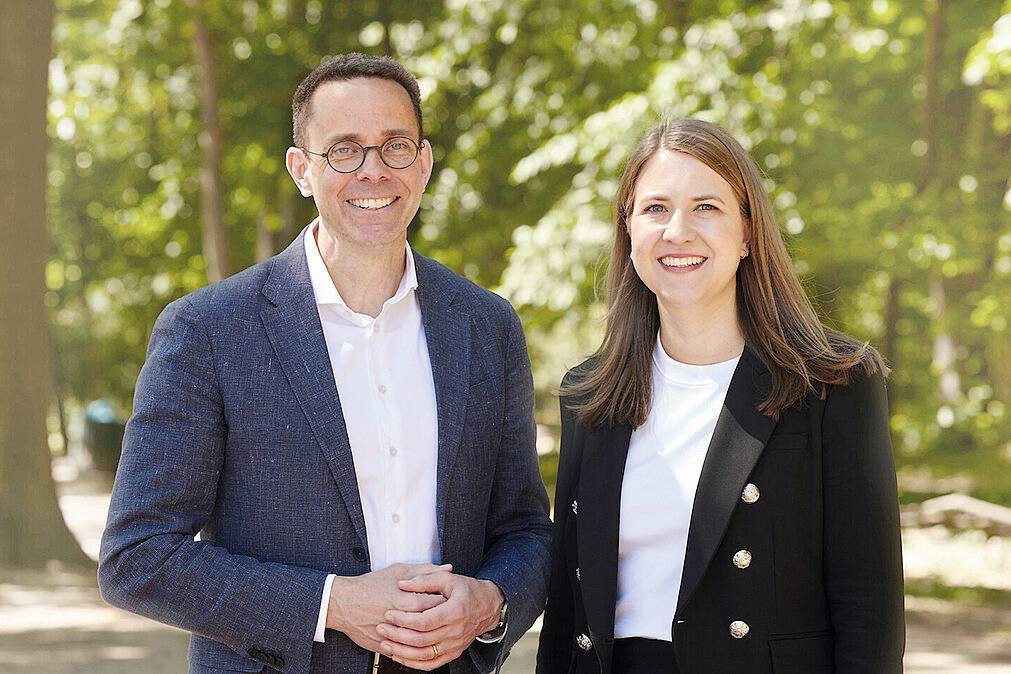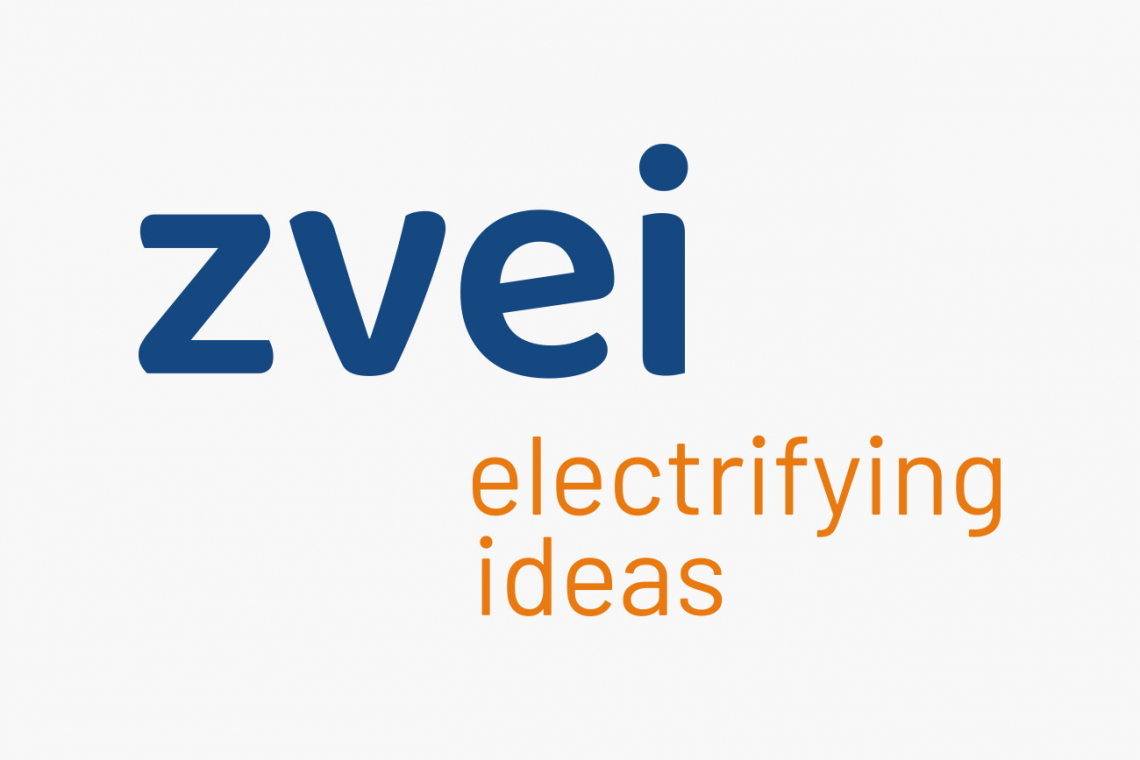Retailers launch information campaign: nationwide battery take-back campaign
As part of the implementation of the European Battery Regulation, consumers are to be informed about the disposal costs of batteries in future. In addition, the Battery Implementation Act, which is due to be passed in the fall, will make general information on battery take-back more visible in retail outlets. In future, both pieces of information will be placed uniformly and clearly visible in retail outlets. The industry is using posters, flyers and stickers to this end.
Stefan Genth, Managing Director of the German Retail Association (HDE), emphasizes: "With the materials designed by the battery take-back information portal "Batterie zurück", retail companies are comprehensively fulfilling their information obligations. In future, it will be even easier for consumers to find all the information on take-back and disposal costs in one place. And for companies, this will ensure an unbureaucratic and practical implementation process."
Together with the BHB (Home Improvement, DIY and Gardening Trade Association) and the ZVEI, the German Electrical and Electronic Manufacturers' Association, a concept was developed to ensure that the obligations can be implemented as simply and legally compliant as possible for all parties involved. This was also the most important point for Dr. Peter Wüst, Managing Director of the BHB: "The BHB supports this jointly developed pragmatic approach. It is important that our retailers in the online store and the sales staff at the PoS can easily cope with the requirements and that customers receive meaningful information without being overwhelmed by too many details. The solution found here makes this possible." "This new concept creates a significant increase in transparency for consumers," comments Wolfgang Weber, Chairman of the ZVEI Management Board. "It provides them with important information on battery return, disposal and costs in one place. This strengthens consumer confidence and at the same time promotes the local circular economy."
 The ZVEI Management Board Wolfgang Weber and Sarah Bäumchen
The ZVEI Management Board Wolfgang Weber and Sarah Bäumchen
Study: Electrical and digital industry is the key sector of the future
There is no way around the electrical and digital industry. The new transformation path study by IW Consult and the Federation of German Industries (BDI) clearly shows that the electrical and digital industry is the sector with the greatest growth potential over the next five to ten years. No other branch of industry is expected to generate more added value by 2035 - in all the scenarios examined.
According to the study, the industry is benefiting from global developments in the major growth markets, all of which revolve around electrification and digitalization: "From AI-supported process automation and electrified heat supply in buildings to the drive revolution in mobility, our companies and their solutions are active in these growth areas - making the electrical and digital industry the key industry of the future," explains ZVEI President Dr Gunther Kegel. He demands: "In order to exploit this potential as fully as possible, we need one thing above all else in addition to entrepreneurial decisions: political framework conditions that are suitable for industry and that promote rather than slow down."
By strengthening the competitive position of German companies and with positive location development, the added value of the electrical and digital industry from growth markets could double to 182 billion euros in 2035 compared to today. This would put it well ahead of all other industrial sectors. The ZVEI is presenting its "Agenda for the industry of tomorrow" based on the results of the study. "The German government must act more decisively than before. We need reforms with force, the innovation booster that has been adopted is clearly not enough," explains Dr. Kegel. At best, the economy is treading water. "In order to secure Germany as an industrial location in the long term, politicians must pay greater attention to technology-driven growth markets such as AI, microelectronics and energy technology."
Cross-sectional technologies and innovations for growth markets
As a provider of cross-sectional technologies, the electrical and digital industry is involved in almost all of the growth markets identified in the study. In the areas of industrial automation and robotics alone, as well as alternative drives, German value creation is estimated to total over half a trillion euros in 2035, assuming a positive development of the competitive framework conditions. The electrical and digital industry will play a significant role here: the development of key components for automation solutions - from components for industrial robots to intelligent control and communication units and embedded software - will not only enable more efficient production processes, but will also significantly drive the digital transformation in the user industries.
An important cornerstone for the electrical and digital industry's high share of the growth markets is its focus on innovation: one fifth of the sector's turnover is generated by new products. Almost a quarter of all R&D expenditure in the manufacturing sector in Germany comes from the electrical and digital industry.
The electrical and digital industry is already the third-largest domestic industrial sector after the automotive industry and mechanical engineering: "With around 900,000 employees in Germany and a turnover of 220 billion euros last year, our industry currently generates around one seventh of Germany's total industrial value added," says Kegel. Not to be forgotten are the spillover effects in supplier industries, which also benefit from the development in the growth markets. The ZVEI position paper "Agenda for the industry of tomorrow" is available for download.
ZVEI calls for fair rules in e-commerce: protect consumers, safeguard competition
The ZVEI warns of increasing market distortions caused by international e-commerce platforms and calls for the consistent application of existing EU law. Around 4.6 billion small consignments with a value of less than 150 euros were imported into the EU from third countries in 2024 - twice as many as a year earlier. This development not only puts consumers at risk due to unsafe products in many cases, but also undermines the competitiveness of compliant companies and thwarts environmental goals as more e-waste is generated.
The association is calling for the rapid abolition of the duty-free import limit of 150 euros, stronger market surveillance with increased controls and the introduction of a coordinating EU authority. "The legal foundations are in place - now they need to be effectively enforced," emphasizes Maria Marinelli, Head of Consumer at ZVEI. Platforms such as Temu or Amazon should be held more accountable: They must ensure that products on offer comply with EU regulations, initiate recalls in the event of safety defects and provide transparent information for consumers. The association is also calling for a swift revision of the EU Customs Code and the consistent use of instruments such as the Digital Services Act.
The main reason for buying from Temu is the low price. They are obviously prepared to compromise on quality: A representative survey by ZVEI - conducted by NIQ GfK in summer 2024 - revealed that two out of five of the users surveyed had had a bad experience with the online platform. For 15 percent of buyers, products broke quickly and for one in ten, they did not work at all.
Another key concern of the ZVEI is the fair participation of all market players in extended producer responsibility (EPR). At present, reputable manufacturers often bear the disposal costs for short-lived products - a competitive disadvantage that urgently needs to be remedied. "A fair digital single market can only be created through clear responsibilities, transparent processes and effective sanctions," says Marinelli. Politicians must close existing loopholes and consistently enforce market rules.
Dates
| Meeting date | Name of the meeting | Venue |
| September | ||
| 16.09.2025 | Industry-specific material compliance requirements/ targeted insights for selected industries | Online |
| 17.09.2025 | Smart metering: From the basics to application | Online |
| 23.09.2025 | Introduction to the ESRS topic standards (CSRD) | Online |
| 24.09.2025 | ZVEI Digital R:Evolution Day 2025 | Berlin |
| 30.09.2025 | Obligation to provide information VSME - Requirements of the voluntary sustainability report of the EU | Online |
| October | ||
| 01.10.2025 | Corporate balance sheet: CO2 accounting according to the Greenhouse Gas Protocol (GHG) | online |
| 07.10.2025 | SVHC reporting with the SCIP database | Online |
| 16.10.2025 | Circular Economy: Understanding the circular economy - basics and practical benefits for companies | Online |
Contacts
Semiconductors Association
Lyoner Straße 9
60528 Frankfurt am Main
Tel. 069/6302-276/-251
Fax 069/6302-407
e-mail
PCBs Components and Systems Association
Lyoner Straße 9
60528 Frankfurt am Main
Tel. 069/6302-437
Fax 069/6302-438
e-mail





